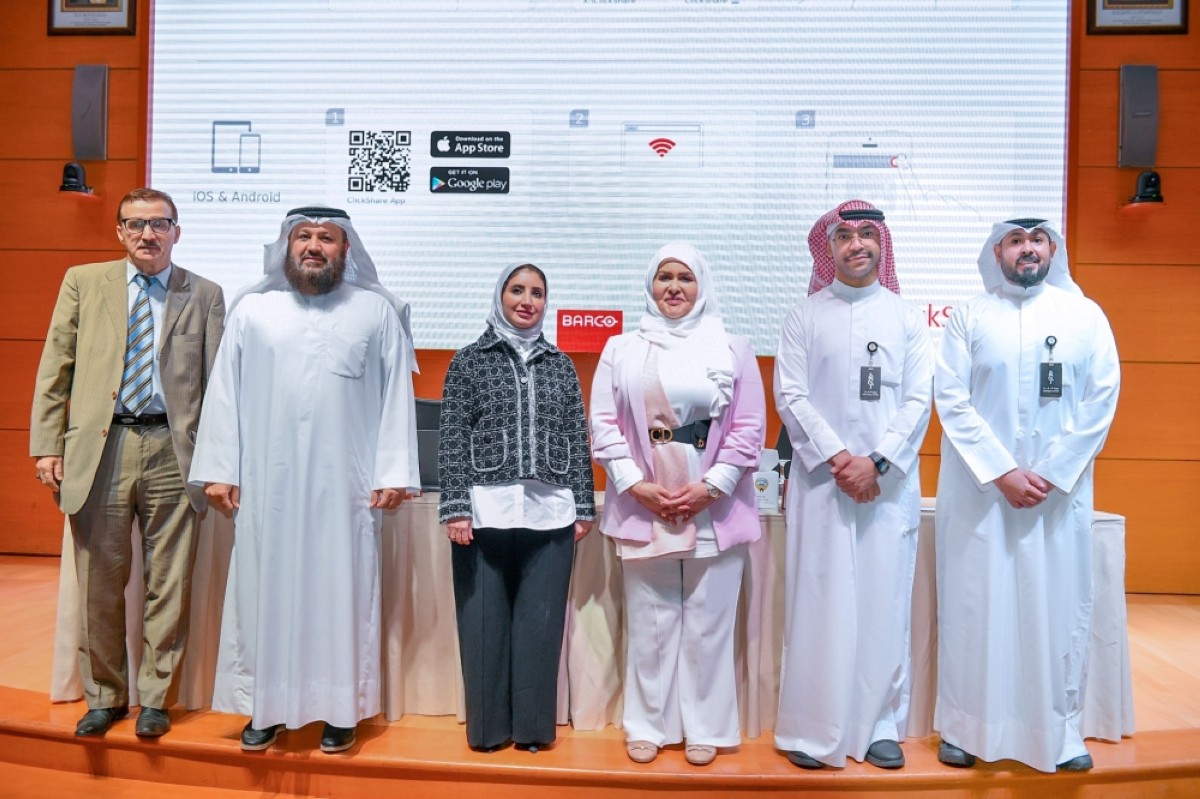KUWAIT: The Ministry of Oil on Tuesday emphasized that the petrochemical sector is not merely a traditional offshoot of the oil industry, but represents its true future. The ministry noted that this vital sector offers broad economic, developmental, and investment opportunities that enhance the added value of the country’s natural resources. This assertion came during a panel discussion organized by the Ministry of Oil titled “Petrochemicals in Kuwait.
” Delivering the opening remarks, Sheikha Tamader Khaled Al-Ahmad Al-Sabah, Director of Public Relations and Media at the ministry, highlighted the country’s unique potential to reinforce its leadership in the petrochemical field. She noted that Kuwait is well-positioned in the sector due to its abundant oil reserves, advanced infrastructure comprising integrated industrial complexes, and substantial investments in research, development, and the training of national talent. Sheikha Tamader stressed that these capabilities reflect the leadership’s commitment to nurturing a generation equipped to drive this promising industry forward.

“The Ministry of Oil considers the development of the petrochemical industry a strategic imperative,” she said, noting its crucial role in transforming raw resources into integrated production chains used in vital sectors such as fertilizers, plastics, and pharmaceuticals. She added that such diversification supports the goals of the New Kuwait 2035 vision, aimed at establishing a resilient, knowledge-based economy. Also speaking during the session, Wafaa Al-Othman, Director of Comprehensive Planning at the Petrochemical Industries Company (PIC), gave a detailed overview of the petrochemical sector’s current status and future outlook both locally and globally.
Al-Othman underlined the petrochemical industry’s growing contribution to Kuwait’s GDP, particularly in non-oil sectors, highlighting its potential as a major source of national income. She explained that petrochemicals, primarily composed of carbon and hydrogen compounds, derive from oil and natural gas—resources not only used for energy but also as feedstock for thousands of essential products such as plastics, synthetic rubber, fibers, detergents, and cosmetics. “Petrochemicals are deeply embedded in modern life, constituting components in more than 90 percent of everyday consumer products,” she noted.
She also elaborated on production methods, describing how oil and gas are converted into base chemicals like olefins, aromatics, and methane derivatives using various processes such as catalytic reforming, steam cracking, and gas reactions. Al-Othman reviewed global market developments, pointing out that petrochemical demand has grown exponentially due to population increases and industrial expansion. She said that over the last 50 years, growth in petrochemical production has consistently outpaced both global GDP and other consumer goods sectors.
However, she noted the current market is experiencing an oversupply—largely due to overexpansion in Asia, particularly China, where demand has not kept pace. This surplus, compounded by excessive stockpiling during the global supply chain crisis of 2021–2022, has resulted in depressed prices and tighter profit margins. Al-Othman highlighted key industry shifts, including geopolitical dynamics, evolving trade policies, and increased investment from emerging economies such as India and China.
These trends, she said, are prompting major players to pursue strategic partnerships and direct investments. Meanwhile, the Middle East continues to maintain competitiveness due to lower feedstock production costs. On sustainability, Al-Othman pointed to a growing shift towards a circular carbon economy, greater use of bio-based raw materials, and regulatory pressure to reduce emissions.
She also cited increasing consumer demand for environmentally friendly and health-conscious products. She stressed the importance of innovation and digital transformation in the sector, particularly through artificial intelligence, predictive analytics, and production optimization technologies. Despite current challenges, Al-Othman affirmed that the petrochemical industry remains a vital and promising global market, currently valued at over $650 billion.
Of this, ethylene and its derivatives account for more than 40 percent, with Southeast Asia representing over half of global sales. Looking ahead, she said global demand for petrochemicals is expected to grow at an annual rate exceeding three percent. Al-Othman emphasized Kuwait’s pivotal role in laying the foundation for the industry regionally as part of its broader national vision to diversify the economy and reduce reliance on crude oil exports.
She also noted that PIC, established in 1963 and incorporated under Kuwait Petroleum Corporation in 1981, serves as the state’s primary entity in the petrochemical sector. The company holds more than four million metric tons in production capacity through domestic operations and international partnerships. Al-Othman concluded by reaffirming Kuwait’s commitment to advancing the petrochemical industry through value-added development, global competitiveness, and partnerships that support sustainable growth—driven by synergy between public and private sectors.
- KUNA.
Business

Petrochemical sector crucial for Kuwait’s economic future

KUWAIT: The Ministry of Oil on Tuesday emphasized that the petrochemical sector is not merely a traditional offshoot of the oil industry, but represents its true future. The minist...














